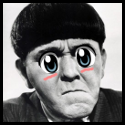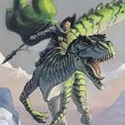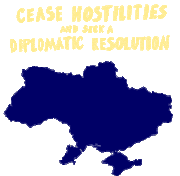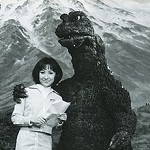|
Lord Krangdar posted:Is this real literature, or pulp fiction? That's not real literature; that's real life.
|
|
|
|

|
| # ? May 15, 2024 03:55 |
|
Mr.48 posted:Of course it can. But it can also be mentally taxing, which after a full day of mentally taxing work is not the ideal way to relax. Also, way to be a douchebag about it. not sure how I'm being a douchebag about anything by stating that I didn't understand the sentiment and using a completely non-offensive word for "a boring person"
|
|
|
|
Well uh *cough* i read "The Secret History" which someone in here recommended way back and it was good poo poo so thats cool. Reading the jacket blurb or whatever i expected it to feel a lot more like foucault's pendulum than the american realists so i had to adjust but i liked it when i got into it. Then I read "Civilwarland in Bad Decline" which made me notice the absence of technology in "The Secret History." I always wonder when people will start setting literary fiction in the now rather than the recent past or the near future, I haven't seen any litfic that deals with the ubiquity of technology & media in a smart way rather than moving backward to avoid it or going into the future to dystopia the poo poo out of it. I guess "Bleeding Edge" is the closest I've seen (and really enjoyed it), I'm curious if anyone has any other examples? Now I'm reading "the testament of gideon mack" on my friend's recommendation which is crazy and weird and funny as hell, about a minister who falls into a gorge and meets Satan (maybe).
|
|
|
|
Rand Fan 420 posted:Now I'm reading "the testament of gideon mack" on my friend's recommendation which is crazy and weird and funny as hell, about a minister who falls into a gorge and meets Satan (maybe). I really enjoyed this book.
|
|
|
|
Rand Fan 420 posted:Well uh *cough* i read "The Secret History" which someone in here recommended way back and it was good poo poo so thats cool. Reading the jacket blurb or whatever i expected it to feel a lot more like foucault's pendulum than the american realists so i had to adjust but i liked it when i got into it. Then I read "Civilwarland in Bad Decline" which made me notice the absence of technology in "The Secret History." I always wonder when people will start setting literary fiction in the now rather than the recent past or the near future, I haven't seen any litfic that deals with the ubiquity of technology & media in a smart way rather than moving backward to avoid it or going into the future to dystopia the poo poo out of it. I guess "Bleeding Edge" is the closest I've seen (and really enjoyed it), I'm curious if anyone has any other examples? You should try to read Point Omega by Delillo maybe. Its short. It deals with technology and media. He takes a lot of different angles to explore the idea of pervasive meta analysis fascinating people, and shaping their emotional experiences. For instance it starts with one of the main characters being fascinated by an art exhibit, which is the shower scene from psycho slowed down and played frame by frame on a loop, so yeah sort of imitating the idea of the news cycle taking everything apart constantly, except like the shower scene you never actually see the violence, so theres this disconnection from feeling the real feeling. There's more to it, but anyway thats just one section of the book, it goes on to be about him trying to make a documentary interviewing a guy from some military or politics think tank, something like that. I can't quite remember.
|
|
|
|
the JJ posted:Sounds like you've got a Dickensian attitude towards quality. (Seriously though, gently caress Great Expectations. The rest of Dickens I read was fine but gently caress Great Expectations.
|
|
|
|
pixelbaron posted:I really enjoyed this book. Yeah when i say 'i'm reading it' what i mean was that i was trying to read it as a palliative between spurts of end-of-semester work and what happened is i did no work and i plowed through the entire thing, enthralled, in basically two sittings. Bundt Cake posted:You should try to read Point Omega by Delillo maybe. Its short. It deals with technology and media. He takes a lot of different angles to explore the idea of pervasive meta analysis fascinating people, and shaping their emotional experiences. For instance it starts with one of the main characters being fascinated by an art exhibit, which is the shower scene from psycho slowed down and played frame by frame on a loop, so yeah sort of imitating the idea of the news cycle taking everything apart constantly, except like the shower scene you never actually see the violence, so theres this disconnection from feeling the real feeling. There's more to it, but anyway thats just one section of the book, it goes on to be about him trying to make a documentary interviewing a guy from some military or politics think tank, something like that. I can't quite remember. Thanks, this sounds right up my alley! I've read 'white noise' and enjoyed it, then attempted 'underworld' and for whatever reason found it absolutely impenetrable, but it's been a bit so I'm definitely willing to give delillo another go. Sounds like i'll want to read it and then go watch Network or something.
|
|
|
|
Rand Fan 420 posted:I've read 'white noise' and enjoyed it, then attempted 'underworld' and for whatever reason found it absolutely impenetrable, That was me, too. Not necessarily impenetrable, but very boring. After White Noise's excellent comedy, Underworld was so depressing. I don't remember a single moment of levity, and it just seemed so pointless and rambling. I finally stopped at page 550.
|
|
|
|
I still consider Libra to be Delillo's best work, for whatever it's worth.
|
|
|
|
Finished The Sea by John Banville yesterday. It won the Booker in 2005, and apparently there was some controversy when he remarked that the Booker judges had rewarded art for once, which is pretty funny. It's been fascinating learning about how the prizes have differentiated themselves and the debates that have ensued. Anyway, the prose and details and similes were all really, really good, but that all felt wasted on the premise (a man goes back to a childhood vacation spot after his wife dies, commence sexual development nostalgia) and I'd like to read one of his earlier books because some of those sound pretty interesting, especially his books about Copernicus and the other people of that time. Anyone else read him?
|
|
|
|
Rand Fan 420 posted:Yeah when i say 'i'm reading it' what i mean was that i was trying to read it as a palliative between spurts of end-of-semester work and what happened is i did no work and i plowed through the entire thing, enthralled, in basically two sittings. Cross posting from the 'other' literature thread: Angry Fish posted:Has anyone else read The Testament of Gideon Mack? It's a great not-awful novel about a Scottish priest and his conflict of faith, eventually leading to a meeting with the Devil. Seldom Posts posted:I did, and I thought it was great. If you liked it, you should read this:
|
|
|
|
Blind Sally posted:I still consider Libra to be Delillo's best work, for whatever it's worth. I'm starting that as soon as I finish the last 200 pages of Mason & Dixon. I'm really excited.
|
|
|
|
All Nines posted:Finished The Sea by John Banville yesterday. It won the Booker in 2005, and apparently there was some controversy when he remarked that the Booker judges had rewarded art for once, which is pretty funny. It's been fascinating learning about how the prizes have differentiated themselves and the debates that have ensued. Could you link to some places you've read about that differentiation? I've always wondered about that.
|
|
|
|
Blind Sally posted:I still consider Libra to be Delillo's best work, for whatever it's worth. Mao II here. I'm glad that everyone has different faves.
|
|
|
|
artichoke posted:Could you link to some places you've read about that differentiation? I've always wondered about that. Unfortunately I've only looked into the Booker, the National Book Award, and the new Folio Prize so far, so I can't comment on, say, the Pulitzer (though I have my suspicions about it) or the PEN awards, but I've posted a few articles below. Wish I could find this one article that had some pithy remarks about the people each award was aimed at, since the articles I've found don't generally compare the awards side-by-side, but ah well. My general impression is that the Booker is inconsistent, but has recently been rewarding or acknowledging commercially successful and perhaps less artistic books over what might actually be the best books of the year. Andrew Motion and Jeanette Winterson, among others noted in these articles, accused the 2011 list of being too readable, or, rather, falsely dividing readability from quality; here's an article disagreeing with claims that the award's being dumbed down. On top of that, its recent opening up to American writers has sparked a debate over whether this will make British authors look bad or reduce their visibility, and whether they deserve it for writing lifeless novels. And there's generally been a bunch of controversies because it gets so much publicity and because it isn't as consistent with its goals as other rewards, flip-flopping between rewarding the insiders' pick and the populist pick. The NBA has generally been the "writer's writer/insider" award and as a result has suffered accusations of rewarding tepid, irrelevant literature. Apparently after the terrible article about it published in Salon, and a reflection on the disastrously commercialized American Book Awards, it's "taking a tough look at itself". And according to this article the Folio Prize was made as a response to the perceived shortcomings of the Booker, and its first shortlist featured writers like George Saunders and Anne Carson, who are popular among the more literary-minded crowd (meaning the "perceived shortcomings" of the Booker are probably that it doesn't reward sufficiently literary books (though I personally don't think Saunders is that good, and I don't know what it says about the rest of the shortlist that he won)). All Nines fucked around with this message at 05:42 on Aug 7, 2014 |
|
|
|
All Nines posted:Great info on book prizes Fascinating and useful stuff, any idea how the Nobel Prize in Literature is perceived? Also what are your reservations with the Pulitzer? I don't know much about their fiction selections but the Pulitzer in History is usually a solid, but never pathbreaking, choice.
|
|
|
|
I'm glad you liked that post. Unfortunately, the only perspective I'm really familiar with on the Nobel Prize is the one held by some Americans who feel that the prize is Eurocentric (i.e. lots of Swedish writers seem to win and the Academy happens to be Swedish), and who feel that it's been too long since an American (or at least a U.S. American) has won and are waiting for someone like Roth or Pynchon or McCarthy to finally take it home. Naturally these people got pretty pissed off a few years ago when the former secretary of the Academy said that American literature, and its literary community in general, were insular and irrelevant. And to be honest I'm not familiar enough with the Pulitzer's most recent shortlists to substantiate my comment or link it with any definite trends; it's more that I can't take it seriously when a recent three-year stretch has seen The Road (the samples I've read had dull prose even for McCarthy), Oscar Wao, and Olive Kitteridge win, and when I see Franzen and Richard Ford in the shortlists. To my view of things it's at best spotlighting, at worst perpetuating fairly mediocre literature, is all.
|
|
|
|
What's the reasoning behind Jonathan Franzen being such a punching bag in this thread? I read The Corrections and Freedom, and while I found the latter a bit boring at points, I remember The Corrections fondly.
|
|
|
|
Barlow posted:Fascinating and useful stuff, any idea how the Nobel Prize in Literature is perceived? Also what are your reservations with the Pulitzer? I don't know much about their fiction selections but the Pulitzer in History is usually a solid, but never pathbreaking, choice. With Nobel Prize you really have to differentiate the countries you're talking about. Pretty much everywhere it's regarded as THE main literary award for world literature, but it's perceived value varies from US on the low end (Americans usually are satisfied with their own prizes and authors) all the way up to China, where Mo Yan's victory was perceived no less as the Western world's vindication of their policies (especially after exiled Gao Xingjian had won it in 2000 causing great shame and upset). The Nobel Prize is often criticized for seemingly 'political' choices, and it's true there is some rotation going on: for instance, it's probably unlikely that another female English-speaking writer will win in the next couple of years. The talks of 'leftist bias' of the committee calmed down after right-leaning and often very politically outspoken Mario Vargas Llosa won it in 2010. Also, it's awarded by a small group of Swedish academics, so there obviously are the biases that go together with that, although I do believe they try very hard not to let them influence too much. In any case, all their choices in the recent decade or two have been very solid with the possible exception of Elfriede Jelinek. They can be quite highbrow, but they're all writers you can spend your whole life reading and re-reading and enjoying the time spent on them more and more. The problem is there are many more great writers deserving the highest possible accolade and the discussion is becoming much more visible and open in the modern world, so making a 'poor' choice would almost have to be done on purpose as they're playing catch-up a lot of the time now. Other notable international literature prizes are IMPAC Dublin (awarded for individual books, tends to be dominated by English-speaking authors, although not usual suspects), Neustadt International (much wider, less Eurocentric, more interesting/debatable choices) and Prince Asturias Award (very solid choices even if geography isn't very wide, seems to value 'readability' (as opposed to ideas/style) more than Nobel prize).
|
|
|
|
Burning Rain posted:The talks of 'leftist bias' of the committee calmed down after right-leaning and often very politically outspoken Mario Vargas Llosa won it in 2010. Although, quite to the contrary, it's been pointed out that MVL's very public criticism of Israel in the 2000s finally made him an acceptable Nobel candidate.
|
|
|
|
Ras Het posted:Although, quite to the contrary, it's been pointed out that MVL's very public criticism of Israel in the 2000s finally made him an acceptable Nobel candidate. Interesting, I hadn't heard of that. Israel might be one of the few topics that both sides of the political spectrum agree on. Either way, majority of well regarded writers seem to be leaning to the left (and I would guess so do the majority of people reading Nobel laureates), so I don't think the committee has an agenda to promote left wing views. It's just a self-perpetuating cycle, in my opinion. I'm secretly hoping Ngugi wa Thiong'o wins it this year, as it'll be fun reading the people criticizing the committee for choosing a passionate Marxist and anti-colonialist author. The guy re-wrote his 'A Grain of Wheat' to make the characters more Marxist and switched to writing in Gikuyu to 'decolonize' the mind, albeit translating the books to English himself. I've only read 'A Grain of Wheat' but it's great and even in the re-written version doesn't seem too political.
|
|
|
|
Burning Rain posted:Interesting, I hadn't heard of that. Israel might be one of the few topics that both sides of the political spectrum agree on. Nah man the point was that Israel/Palestine is such a divisive left/right issue that Vargas Llosa crossing the floor finally made him a contender in the eyes of this not-entirely-supposed leftist literary bloc. Not that you should award fascists anything ever.
|
|
|
|
Seldom Posts posted:Cross posting from the 'other' literature thread: good point, it's on my list! I haven't read it yet but it's on the kindle store and project gutenberg for free cuz it's so old if anyone else is interested.
|
|
|
|
Rand Fan 420 posted:good point, it's on my list! I haven't read it yet but it's on the kindle store and project gutenberg for free cuz it's so old if anyone else is interested. I posted about this and Gideon Mack earlier in the thread. Confessions is old and a bit stilted language-wise but in terms of ideas and concept it feels ahead of its time, even if the specific ideas of predestination and the presbyterian Elect aren't very relevant these days. John Charity Spring fucked around with this message at 23:36 on Aug 7, 2014 |
|
|
|
The Erland posted:What's the reasoning behind Jonathan Franzen being such a punching bag in this thread? I read The Corrections and Freedom, and while I found the latter a bit boring at points, I remember The Corrections fondly. He's a popular writer who's said a lot of incredibly obnoxious things outside of his novels, so he's an easy target.
|
|
|
|
For what it's worth, I feel like I've been doing most of the complaining about him; most of the talk about him in this thread seems to be favorable, and I'm pretty hard to please in general. On the other hand, none of the samples I've seen in reviews of his work have endeared him to me any more than his public statements. Though it doesn't help that even when he's translating another writer he can't help observing that he and this writer are both angry people and using those essays as springboards for more ranting.
|
|
|
|
All Nines posted:For what it's worth, I feel like I've been doing most of the complaining about him; most of the talk about him in this thread seems to be favorable, and I'm pretty hard to please in general. On the other hand, none of the samples I've seen in reviews of his work have endeared him to me any more than his public statements. Though it doesn't help that even when he's translating another writer he can't help observing that he and this writer are both angry people and using those essays as springboards for more ranting. Wait, you've been doing the most complaining about him and all you've read of his work are samples in reviews? goon.txt
|
|
|
|
Sinteres posted:He's a popular writer who's said a lot of incredibly obnoxious things outside of his novels, so he's an easy target. He's so precious, my favorite franzie quote was when i went to go see him speak and he opened by complaining about having to spend all day with grad students doing a Q&A because he hates grad students, who he thinks will criticize his work
|
|
|
|
John Charity Spring posted:I posted about this and Gideon Mack earlier in the thread. Confessions is old and a bit stilted language-wise but in terms of ideas and concept it feels ahead of its time, even if the specific ideas of predestination and the presbyterian Elect aren't very relevant these days. Confessions is also one of the first unreliable narrator novels, and a direct influence on Gideon Mack and (I'm told) other Scottish literature. I would go so far as to say it's still entirely relevant and should be a bigger part of the western canon.
|
|
|
|
It's also incredibly deft at conjuring up an eerie sense once it eventually gets around to the confession.
|
|
|
|
Seldom Posts posted:Confessions is also one of the first unreliable narrator novels, and a direct influence on Gideon Mack and (I'm told) other Scottish literature. I would go so far as to say it's still entirely relevant and should be a bigger part of the western canon. Oh it's still relevant in those terms, I meant specifically the religious stuff it's satirising. And yeah it had a massive influence on a lot of Scottish literature that continues to be written to this day (from Jekyll & Hyde to Alice Thompson's Burnt Island, just to pick out two novels from opposite ends of its period of influence).
|
|
|
|
I've seen other people ask for recommendations in this thread, so hopefully I won't get my throat slit. I've wanted to try and read more good books for a long time, since I actually enjoyed some of the books I read in high school, but then I went to school for engineering and never took an English class again. I've read and really like Catch-22, Faust, Frankenstein (this book is so utterly unlike every single reference to it I have no idea how it happened) and Heart of Darkness, read some others that don't stick out (hated Bronte but probably because it was high school), and I'm really well read on plays at least. My wife's favorite book is 1984, but I didn't make much headway when I tried to read that a few months ago. I adore absurfist theatre and Catch 22 is probably my absolute favorite novel, do any suggestion in that vein would be great, but I'm also considering some detective stories because I listen to old detective radio shows all the time. But seriously, Frankenstein's monster is yellow, speaks eloquent French and was extremely physically coordinated, how the Hell did we get the modern version of the monster?
|
|
|
Doulos posted:I've seen other people ask for recommendations in this thread, so hopefully I won't get my throat slit. I've wanted to try and read more good books for a long time, since I actually enjoyed some of the books I read in high school, but then I went to school for engineering and never took an English class again. I've read and really like Catch-22, Faust, Frankenstein (this book is so utterly unlike every single reference to it I have no idea how it happened) and Heart of Darkness, read some others that don't stick out (hated Bronte but probably because it was high school), and I'm really well read on plays at least. My wife's favorite book is 1984, but I didn't make much headway when I tried to read that a few months ago. I adore absurfist theatre and Catch 22 is probably my absolute favorite novel, do any suggestion in that vein would be great, but I'm also considering some detective stories because I listen to old detective radio shows all the time. Check out Money or London Fields by Martin Amis.
|
|
|
|
|
Doulos posted:I've seen other people ask for recommendations in this thread, so hopefully I won't get my throat slit. I've wanted to try and read more good books for a long time, since I actually enjoyed some of the books I read in high school, but then I went to school for engineering and never took an English class again. I've read and really like Catch-22, Faust, Frankenstein (this book is so utterly unlike every single reference to it I have no idea how it happened) and Heart of Darkness, read some others that don't stick out (hated Bronte but probably because it was high school), and I'm really well read on plays at least. My wife's favorite book is 1984, but I didn't make much headway when I tried to read that a few months ago. I adore absurfist theatre and Catch 22 is probably my absolute favorite novel, do any suggestion in that vein would be great, but I'm also considering some detective stories because I listen to old detective radio shows all the time. The best Absurdist theater is Waiting for Godot by Samuel Beckett. The closest war novel to Catch 22 is Slaughterhouse Five by Kurt Vonnegut. Instead of Nineteen Eighty-Four, read Brave New World by Aldous Huxley, it's better. If you like Frankenstein, you will like Wuthering Heights by Emily Bronte and Dracula by Bram Stoker. Which Bronte sister did you read in high school? There were three of them. For detective fiction, read The Big Sleep by Raymond Chandler and The Face by Seicho Matsumoto.
|
|
|
|
Name of the Rose is detective/mystery y and really good.
|
|
|
|
Doulos posted:I've seen other people ask for recommendations in this thread, so hopefully I won't get my throat slit. I've wanted to try and read more good books for a long time, since I actually enjoyed some of the books I read in high school, but then I went to school for engineering and never took an English class again. I've read and really like Catch-22, Faust, Frankenstein (this book is so utterly unlike every single reference to it I have no idea how it happened) and Heart of Darkness, read some others that don't stick out (hated Bronte but probably because it was high school), and I'm really well read on plays at least. My wife's favorite book is 1984, but I didn't make much headway when I tried to read that a few months ago. I adore absurfist theatre and Catch 22 is probably my absolute favorite novel, do any suggestion in that vein would be great, but I'm also considering some detective stories because I listen to old detective radio shows all the time. A lot of people are huge Raymond Chandler fans but I love James M Cain (Double Indemnity, The Postman Always Rings Twice) and more recently, James Ellroy's novels especially the L.A. Quartet. For absurdist fiction, try Julian Barnes' A History of the World in 10 1/2 Chapters, or Will Self. Will Self is pretty polarizing so you will either love him or hate him, but can you resist a book (Great Apes) with this synopsis: Simon Dykes is a London painter whose life suddenly becomes Kafkaesque. After an evening of routine debauchery, traipsing from toilet to toilet and partaking in a host of narcotics, the middle-aged painter wakes to discover that his girlfriend, Sarah, has turned into a chimpanzee. Simon is also a chimp, but he does not accept this fact—he is convinced that he is still human. He is then confined to an emergency psychiatric ward and placed under the care of alpha-psychiatrist Dr. Zack Busner. Simon finds chimp behavior a bit unnatural; he can't bring himself to use gestures rather than speech to communicate. He also finds it difficult to mate publicly or accept social grooming. Dr. Zack Busner—also a medical doctor, radical psychoanalyst, maverick axiolytic drug researcher, and former television personality—is prepared to help Simon get used to "chimpunity". It is during Simon's gradual simianization that Self's true satirical genius shines, as he examines anthropology, the trendy art world, animal rights, and much more.
|
|
|
|
The outisder and the plague by Albert Camus are basically the first absurdist novels and they are good. Generally you and everyone else should read MOscow to the end of the line (also called Moscow-Petushki) by Venedikt Erofeev because it is a prose poem about a man getting drunk on the train and it is really good.
|
|
|
Smoking Crow posted:The best Absurdist theater is Waiting for Godot by Samuel Beckett. The closest war novel to Catch 22 is Slaughterhouse Five by Kurt Vonnegut. Instead of Nineteen Eighty-Four, read Brave New World by Aldous Huxley, it's better. If you like Frankenstein, you will like Wuthering Heights by Emily Bronte and Dracula by Bram Stoker. Which Bronte sister did you read in high school? There were three of them. Beat me to most of my suggestions, with the exception of Wuthering Heights, which is what Twilight wants to be when it grows up (WH is a great novel about horrible people behaving horribly to each other, and best avoided imho). You could also try Dr. Jekyll and Mr. Hyde. For detective fiction I'd say start with The Maltese Falcon; Chandler was building on Hammet in a lot of ways so I think there's a benefit to starting with the earlier author. For aburdist theater, I'd add in Tom Stoppard also; start with Rosencrantz and Guildenstern are Dead and then maybe try Arcadia if you want to get some 18th-century vibes into your reading.
|
|
|
|
|
You can also keep reading Conrad as he wrote a lot. The Secret Agent, Lord Jim, Tales of Unrest, Nostromo, Under Western Eyes are all as good. His deeply ironic, intricately written style also owes a lot to Henry James, though he writes more about the problems of marriage in the upper classes than dangerous trips upriver to extract a murderous thief. The Aspern Papers is a short story of his occasionally cited as the inspiration for HoD, but it's about a critic trying to pry some author's letters from the hands of a widow and her spinster daughter. It's good, but doesn't have the appeal of an adventure. Going on from Frankenstein you could well explore just a bunch of gothic books. I really should be able to suggest some good ones but I've forgotten them all. Hogg's Confessions of a Justified Sinner is good (if you get bored, just skip half of it to the actual confession, where the devil shows up), a lot of Robert Louis Stevenson's ghost stories are good, and of course there's Poe. Doulos posted:But seriously, Frankenstein's monster is yellow, speaks eloquent French and was extremely physically coordinated, how the Hell did we get the modern version of the monster? After it came out Frankenstein was adapted into a dozen or more plays. One of these, by one Peggy Webling dumped out the Goethe-reading, acrobatic monster and replaced it with a shambling heap called Frankenstein. That was a hit so Universal bought the rights and their film was so successful that it sealed Boris Karloff in that make-up as the definitive monster. Mr. Squishy fucked around with this message at 18:57 on Aug 8, 2014 |
|
|
|

|
| # ? May 15, 2024 03:55 |
|
Doulos posted:I've seen other people ask for recommendations in this thread, so hopefully I won't get my throat slit. I've wanted to try and read more good books for a long time, since I actually enjoyed some of the books I read in high school, but then I went to school for engineering and never took an English class again. I've read and really like Catch-22, Faust, Frankenstein (this book is so utterly unlike every single reference to it I have no idea how it happened) and Heart of Darkness, read some others that don't stick out (hated Bronte but probably because it was high school), and I'm really well read on plays at least. My wife's favorite book is 1984, but I didn't make much headway when I tried to read that a few months ago. I adore absurfist theatre and Catch 22 is probably my absolute favorite novel, do any suggestion in that vein would be great, but I'm also considering some detective stories because I listen to old detective radio shows all the time. One of my favorite plays which idk if counts as "absurdist" in the critical sense of the word but you might enjoy, is "The Persecution and Assassination of Jean-Paul Marat as Performed by the Inmates of the Asylum of Charenton under the Direction of the Marquis de Sade" ("marat/sade" for short) by Peter Weiss, there's also a staging of it up on Youtube last time I checked that is pretty entertaining. Most things by Peter Handke are also excellent. Pinter too. Echoing others that Slaughterhouse Five will probably do you well. Have you read any Kipling? Try "The Man Who Would be King," it's short and you might enjoy it.
|
|
|































